Coaching Psychology for the Adjustment of Organisations
and People to changes over the next 10 years
19th-20th May
Speakers
- Boada, Joan (ES)
- Boniwell, Ilona (UK)
- Dini, Silvana (IT)
- Durán, Maite (ES)
- Farmer, Sam (NZ)
- García, Miguel (ES)
- Green, Suzy (AU)
- le Roux, Anna-Rosa (ZA)
- Luna, Roberto (ES)
- Montero, Xavier (ES)
- Moran, Jayson (IE)
- O'Riordan, Siobhain (UK)
- Palmer, Stephen (UK)
- Passmore, Jonathan (UK)
- Pavlovic, Jelena (RS)
- Queralt, Íngrid (ES)
- Quintana, Joan (ES)
- Reche, Elvira (ES)
- Romero, Francisco S (ES)
- Salanova, Marisa (ES)
- Stelter, Reinhard (DK)
- Valderrama, Beatriz (ES)
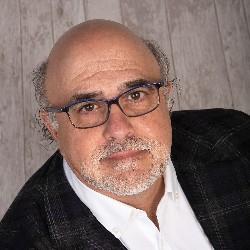
Joan Boada (ES)
Title
The Role of Coaching Psychology when Managing Human Talent in VUCA Environments
Abstract
Social and economic environments are considered to be fluid, as are labor markets; gone is the consideration of environments being solid, fixed and watertight. Moreover, such environments are characterized by being volatile, uncertain, complex and ambiguous (VUCA). Thus, within this framework, the professional skills of both coachee and coach acquire great importance. This study will also review the main skills required and their value to achieve optimal employability. Likewise, the main professional career vectors will be reviewed. It is all based on the axiom of the employee, manager, entrepreneur, etc. as the one who designs his/her professional career by analyzing his/her adaptability, identity, intentionality, self-knowledge, curiosity, etc. Thus, we should not expect “others” to design our career. The need to develop a sustainable professional career will be addressed. Finally, various practical cases intertwined and connected with the previously presented themes and constructs will be presented.
Currículum vitae
Professor Full-Time of the University of the Rovira i Virgili University (Tarragona, Spain) (Dept. of Psychology). Senior Coach by AECOP, has more than 3,500 hours of experience in coaching sessions. Doctor in psychology from the University of Barcelona. He has directed 10 doctoral theses. He currently directs 12 doctoral theses in co-supervision. Has directed a doctoral thesis on coaching. Tree stretch of research and one of transference for ANECA. Member of various scientific committees of various congresses. He is the co-author of 4 books, more than 40 book chapters and more than 65 articles in journals with ISI-JCR impact index. He has presented more than 100 communications to national and international congresses. Director of the Research Group "Spitzen Value, Human Resources" of the Rovira i Virgili University (Tarragona, Spain). He has obtained tree awards in the field of Human Resources. Collaborator and lecturer in public and private institutions (national and international). Stays at universities and foreign research centers (Perú, México, etc.). Lines of specialization and research: Human Resources and Coaching, Occupational health, Psychosocial risks, Creativity and Entrepreneurship. Subjects taught: Social Psychology, Psychology of Organizations, Negotiation Psychology, Occupational Health (doctorate). He has directed university extension courses and HR symposia. He has directed transfer projects through the URV Foundation to multinational companies and public institutions. Judicial expert. Teaching at masters: Open University of Catalonia, University of Almeria, Pompeu Fabra University. Pontifical Catholic University of Perú. Member of: COPC (Col·legi Oficial de Psicologia de Catalunya), EAWOP (European Association Work and Organizational Psychology), AEDIPE (Spanish Association of Personnel Directors), ACCID (Catalan Association of Compliance and Management), ACPJF (Catalan Association of Judicial Experts i Forensics), SCEPS (Spanish Scientific Society of Social Psychology), AECOP/EMCC-Spain (European Mentoring & Coaching Council).

Ilona Boniwell (UK)
Title
Positive Psychology Coaching for Team Resilience
Abstract
The Covid-19 pandemics has thrown the world of work in chaos, with many organisations having to adapt to rapidly changing circumstances. Many of the teams used to cooperating around an office base have found themselves needing to operate virtually, often without clarity on operating modalities, new task distribution or performance expectations. Individual level pressures, such as health concerns, home-schooling one’s children and merged home-work boundaries added to rising stress and exhaustion. Over and above individual resilience capacities, what are the drivers predicting resilience at the team level? How can collective efficacy and agility be optimised under conditions of increased stress? What positive organisational practices are most suitable for on-line delivery?
We will address the above questions by drawing on the new research findings around team resilience and my practical experience of accompanying multiple teams through the pandemics. This presentation will consider methods that can be used to develop team resilience resources, identifying and acting upon team resilience levers and optimising strengths-task fit through collective job crafting.
Currículum vitae
Ilona Boniwell is a professor of positive psychology at the University of East London and the original founder of the UEL’s MSc in Applied Positive Psychology, the first ever degree of this type in Europe. She is one of the world leaders in positive psychology, working in the field for over 20 years, originally mentored by Martin Seligman. Professor Boniwell wrote or edited twelve books, delivered over 200 keynotes and a TEDx, founded the European Network of Positive Psychology, organised the first European Congress of Positive Psychology and was the first Vice-Chair of the International Positive Psychology Association (IPPA). She is also a passionate practitioner of positive psychology. As a CEO of Positran she consulted the Governments of UAE and Bhutan and many major international companies, including ClubMed, L’Oréal, Unilever, Nestle, EY, Microsoft and BNP Paribas.

Silvana Dini (IT)
Title
An emergency room or a good habit? How Italian coaches are using supervision.
Abstract
In Italy, supervision in coaching is experiencing a phase of new fervor and initiatives. Four coaching professional bodies with a significant presence in the Italian coaching arena - EMCC (European Mentoring and Coaching Council), ICF Italia (International Coach Federation), AICP (Associazione Italiana Coach Professionisti), SCP Italy (Society for Coaching Psychology Italy) - have set up an inter-association table aimed at promoting the culture of supervision in coaching and writing the first Italian inter-association Manifesto of supervision in coaching. The four associations share that supervision plays a pivotal role in assuring the quality of coaching services, in developing and sustain the coaches and the coaching psychologists in their CPD.
The keynote session aims to offer the state of the art of coaching supervision in Italy and to present the results of the "Inter-association Survey on Coaching Supervision" launched in January 2022 (EMCC, ICF Italy, AICP, SCP Italy, 2022).
The online questionnaire based survey is aimed at understanding the use of supervision by coaches and coaching psychologists in the last two years of COVID pandemic, deepening the following aspects: the value perceived by the coaches and the coaching psychologists, the expected benefits, the reasons why they might use supervision, main obstacles to use supervision, the supervisor selection criteria.
Among the results of previous surveys (SCP Italy, 2012; 2014) it emerged that the main function of supervision stills tends to be reparative, post hoc (to face difficulties, personal blind spots & blocks) instead of developmental, ante hoc. We will see together the results of this the current Supervisee and Supervisor Identikit and if and how this aspect is evolving.
Currículum vitae
Silvana Dini is a Coaching Psychologist (FISCPAccred), Coaching Supervisor (ISCP Accred), Management Consultant. Co-founder and Steering Committee member of SCP Italy, ISCP Honorary Vice-President. Co-director of the Advanced Training Course in Business Coaching Psychology at the Università Europea di Roma.

Maite Durán (ES)
Title
Visualizing the Competent Coaching Psychologist
Abstract
Currículum vitae
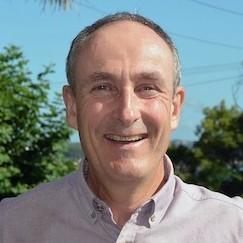
Sam Farmer (NZ)
Title
The Benefits of Coaching Psychology Supervision: Cui bono?
Abstract
Whilst the benefits of supervision in coaching psychology continue to be debated, the discussion tends to focus upon the supervisee. This presentation will aim to: broaden the discussion to a consideration about whom – and what – else might benefit from the supervisee being supervised; and, as a result, give greater weight to the argument for the value, and necessity, of coaching psychology supervision.
Currículum vitae
Sam is Owner-Director of Enhance Facilitation Limited and a registered New Zealand/ Aotearoa Coaching Psychologist. He received his Coaching Supervisor Accreditation from Oxford Brookes Business School and is an Accredited Supervisor and Associate Fellow of the International Society for Coaching Psychology. Sam also co-founded and was the first Chair of the New Zealand/ Aotearoa Coaching Psychology Special Interest Group. Sam’s model of supervision is based upon the philosophy that most people have a level of discomfort or dissatisfaction with their practice, and want to enhance the knowledge and skills that they put into – and the meaning that they gain from – their work as a result. To his work, he enjoys bringing a structured and ethical approach that is informed by his client’s perspective, Te Ao Māori (Māori worldview), Acceptance and Commitment Training, Compassion-Focused Therapy, as well as models informed by change- and systems-theories. Naturally, for his own professional development, Sam values and regularly utilises (both hierarchical and peer) supervision. In addition to providing supervision, Sam coaches diverse clients across the state, not-for-profit and commercial sectors to enhance their own authentic and effective professional styles. In relation to his areas of specialism – leadership coaching, psychosocial growth, professional supervision – Sam has provided a number of international presentations and articles, including: “What is the nature of supervision in Coaching Psychology?” Psychology Aotearoa; “How does a coach know that they have found the right supervisor?” in Coaching: an International Journal of Theory, Research and Practice.

Miguel García (ES)
Title
Supervision and Development of Skills in Coaching
Supervision is a widespread practice and of recognized utility in various professional fields. For decades and within the particularities of each one of them, essentially, supervision has been aimed at improving praxis in intervention procedures such as psychotherapy, training, counselling, mentoring, consulting, etc. In more recent times, coaching has joined this list, adopting the same general improvement objectives and adapting pre-existing models and guidelines to its own uniqueness.
In this sense, supervision creates and consolidates a learning context aimed at achieving more effective coaching processes, all of this, preferably, from a perspective of continuous improvement that seeks to progressively increase the quality of the coaching service. In this development, it is crucial to consider the work of its protagonists: the coach who supervises and the coach who is supervised. Likewise, it is necessary to adopt a competency approach, which allows the process to be analyzed in detail, in addition to directing these improvement efforts in a more operational, detailed and verifiable way to favor the effectiveness of the supervision itself.
Thus, the effectiveness of supervision in coaching is linked to the skills of both those who exercise and those who receive supervision, as well as skills they have already previously mastered and skills they are in the process of developing. Supervision is also linked to how these competencies and their various components (knowledge, skills, attitudes, beliefs, values...) converge in the system created by both parties throughout the process. In this case, competencies for supervising, competencies for receiving supervision and competencies for exercising coaching are the main axes. However, there is still a need for consolidating rigorous research on this topic, beyond the numerous practical proposals made by professionals in the field, in order to contribute an evidence-based approach to coaching supervision.
Currículum vitae
Miguel García holds a degree in Psychology and a PhD in Social Psychology from the Universidad Complutense de Madrid (UCM). He is a coaching psychologist (PsEC-0029) with the Official Association of Psychologists of Madrid and a member of the International Society for Coaching Psychology (MISCP-591). He is the director of the Advanced Program of Coaching Psychology and Psychological Coaching at the UCM Faculty of Psychology. He is also a teacher and a researcher at the UCM Faculty of Psychology. His interventions for the development of individuals, groups/teams and organizations include coaching, design and application of training as well as consultancy. Miguel García has published and participated in conferences, congresses, as well as specialized and Master courses on these topics.

Suzy Green (AU)
Title
The utilisation of Positive Psychology Coaching in Organisations to enhance mental health, wellbeing and capability building for all.
Abstract
With the emergence of Positive Psychology Coaching in the Workplace (Smith, Boniwell & Green, 2021) organisations are beginning to consider the utilisation of coaching in the workplace beyond leadership. This move to providing coaching more broadly within organisations is being referred to as the “democratisation of coaching”. As technology supports organisations to provide coaching to their broader employee base via virtual delivery and reduced fee structures, the focus of coaching is moving from a traditional focus on coaching for performance to coaching for wellbeing. Even in executive and leadership coaching, there is an increased interest in "third generation coaching" (Stelter, 2014 and Grant, 2017) which focuses on both performance and wellbeing, and values and meaning in response to the increased mental health concerns and burnout in organisations caused by the effects of the global pandemic. In this presentation, by Dr Suzy Green, a leader in the field, will provide a brief overview of the evolving field of Positive Psychology Coaching. Suzy will also provide examples of its current use in the workplace and Suzy’s vision for the future of PPC in organisations.
Currículum vitae

Anna-Rosa le Roux (ZA)
Title
Getting out of flatland to make real changes in our world
Abstract
Background
Many of the problems that we face today are framed as ‘wicked problems’ that arise when we face constant change that traditional processes cannot resolve, for example, biodiversity, waste management, temperature increase or energy consumption. It is not necessarily the degree of difficulty, but the interrelatedness of many facets that characterize these. Usually there is a degree of technical difficulty as well as a social complexity that makes these tough to manage. The same way that circular economies are a response to sustainable business, we need new solutions to facilitate the psychological transformation to include ecopsychology.
As coaching and consulting psychologists a sensitivity, awareness and consciousness that resonates with the emerging environmental challenges in our world are required as we practice our profession as ethical citizens.
Aims
What we know is required today is second order (transformational) change that is multi-dimensional, multi-levelled and radical, fundamentally different from what we have done before. The latter requires a shift in meaning. One of our only resources to drive this shift in meaning is accessing our human consciousness to create an inclusive level of awareness.
This paper aims to engage coaching and consulting psychologists in a thought experiment to create radical shifts in how we see the world and our place and role therein. We are required to be committed to a process where we are open to change ourselves and resonate with the aspirated consciousness of our clients.
In this paper, we propose that:
-
A different kind of thinking and being is necessary to respond to disruption in our lives (e.g. recognising the cost of sustainable solutions is a requirement for dialogue and planning in an inclusive manner)
-
We need to embrace an inclusive level of consciousness to get out of flatland and appreciate alternative perspectives (e.g. excluding those perspectives we don’t agree with leads to differential in our society and ultimately conflicting ideals)
We explore the concepts of transformational vis-a-vis translational change, integral levels of development, value shift, inclusive consciousness and engagement and quality contact.
Conclusion
In a disruptive world, where we are faced with complexities that seemingly do not have an answer, one of the authentic responses is to embrace our humanness (where immoral and illegal activities are not the same). Through accessing our human consciousness, we are able to develop meta-perspectives that guide us to connect with the world in a more balanced way. Getting out of flatland is a key proposition in this journey and opens up new impetus to embrace alternative broader perspectives, playing along in a world-centric state.
Currículum vitae
She is Honorary Vice-President of the International Society for Coaching Psychology; Chairperson - Interest Group in Coaching and Consulting Psychology; International Steering Committee of the First International Congress of Coaching Psychology; EXCO member of Society for Industrial and Organisational Psychology of South Africa; EXCO member of Association of Change Management Practitioners of Africa. SIOPSA Member Honore List; Fellowship, International Society for Coaching Psychology, outstanding contribution to the development of Coaching Psychology; President Award, SIOPSA for the contribution to Coaching Psychology locally and globally. Chapters in 2 books: “Anchoring OCD in Consulting Psychology” (2015) and “Contextualising coaching psychology within multi-cultural contexts” (2016). Dr Anna-Rosa le Roux is a registered Industrial/Organisational Psychologist (HPCSA) and holds post graduate degrees in Psychology and Leadership, Performance and Change (DPhil). She has delivered Consulting Psychology assignments in Europe, Africa and the Middle East for corporate, government and not for profit organisations and has represented South Africa for her profession in London, Sydney, Paris, San Diego, Rome and Barcelona. She co-founded Worklife Digital and Partners, which provides digital psychology journeys for a sustainable future. Integrative Enneagram Solutions (2017-2020); WoolWorths Financial Services: Head People/Organisational Effectiveness (2013-2017); Goldfields International: Regional Head, Talent & OD (2012–2013); JVR Consulting Psychologists Director (2009–2011), Requisite Business Solutions (2000–2008).

Roberto Luna (ES)
Title
Executive Coaching and Leadership from Talent Management
Abstract
Executive coaching, as a discipline of work and organizational psychology, is catching the eye of both professionals and academics. More and more companies are seeing the importance of executive coaching as a competitive edge in human resource and talent management. This advantage is achieved both by aligning organizational objectives and the agile learning it generates. However, one must not forget that within talent management, executive coaching is a very powerful tool at the service of talent development strategies. Therefore, its use is essential in talent environments where it is maximized thanks to its ties with competency-based management and the organization’s culture of talent. Moreover, only talent-based leadership is able to attain maximum effectiveness and efficiency.
Currículum vitae
Roberto Luna is a professor of business administration at the Universidad de Valencia, Faculty of Economics. He holds a graduate degree in Psychology and is a doctor in Social Psychology, as well as an expert in Human Resources and Talent Management. He is a researcher, with more than sixty scientific publications, and is the author of the following Human Resources manuals: Gestión del talento (Ed. Pirámide, 2018) and Recursos humanos para turismo (Pearson Prentice Hall, 2006). He is the scientific author of seven books on professional and personal development, with his latest book in 2021 being Liderar desde el talento (Ed. Alienta, Grupo Planeta). He has professional experience in more than a hundred companies in the fields of Human Resources, Talent Management and Executive Coaching. He is an international speaker on talent management issues, as well as a visiting professor at the University of Oxford (England) and Middle Tennessee State University (USA), among others.

Xavier Montero (ES)
Title
Coaching Psychology as a Support Tool in Business Transition Processes
Abstract
Coaching psychology applied to business transition processes is a strategic tool for organizations, but not very widespread in Spain.
It is designed to help organizations and their talent deal with transition and separation in an innovative manner, by humanizing the process while minimizing the inherent risks in this phase (loss of know-how, lack of understanding or less commitment, etc.).
For the worker, it means a gradual transition during which he/she must adequately prepare for the onset of another challenging phase of life. For the company, it has multiple benefits: it allows adequate management and transmission of knowledge; it facilitates decoupling on good terms; it represents an additional social benefit at this stage of the professional relationship; it reinforces internal and external branding, etc. Moreover, it paves the way to generational diversity management, through a change of role: the professional leaves the front line of fire to adopt a mentor role towards newer teams or professionals or becomes involved in fixed-term projects, where his/her talent joins that of other professionals.
Change is an opportunity.
Currículum vitae
Xavier Montero holds a degree in Psychology from the Universitat de Barcelona, specialized in work and organizational psychology. He also holds a Master’s degree in Human Resources Management from EADA Business School. He is a certified coaching psychologist with the COPC (Official Association of Psychologists of Catalonia) and ISCP (International Society for Coaching Psychology). As a EuroPsy certified psychologist, he is a specialist in work and organizational psychology by EFPA (European Federation of Psychologists’ Associations). He has been a member and treasurer of the COPC Board of Directors in the Work and Organizational Psychology Section (SPOT) since 2014. He has more than thirty-three years of experience in the world of Human Resources consulting (recruitment, selection and coaching for directors), both at national and international firms.
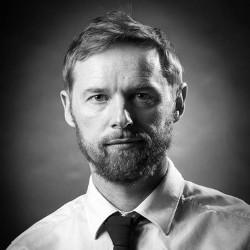
Jayson Moran (IE)
Title
Procrastination from many angles: An applied approach to a common problem
Abstract
We all do it. Those we help do it. In fact - we might even procrastinate about doing something about it. Over 80% of us procrastinate regularly, with some of us to the point where it has detrimental effects on important life areas like our relationships, finances and career. A recent study (Wang, et. al, 2022) highlighted procrastination as one of the four key challenges for remote workers. Considering the normalization of remote work in many organizations of late, procrastination is an now an organizational issue. This talk hopes to demonstrate how to address the problem of procrastination from multiple angles, using multiple models, to help get you, and those you help moving. I will discuss the use of techniques including motivational interviewing, Cognitive Behavioural Coaching, Positive Psychology and Behavioural Science to help with procrastination.
Currículum vitae
Jayson’s focus is on performance, productivity & wellbeing. He helps students, professionals and entrepreneurs rise to their challenges, and achieve what’s important professionally and personally. Influenced by numerous psychological schools of thought, he utilizes evidence-based methodologies such as Cognitive Behavioural Coaching, Personality Assessment, Motivational Interviewing and Values Analysis in both his individual coaching work, talks and workshops. Areas of particular interest include procrastination, motivation, confidence, interpersonal relations, stress, productivity and personality. He helps clients better understand themselves, their aims, and to understand and address what’s getting in the way of progress.
Jayson is a full member of the Psychological Society of Ireland (PSI) and studied psychology at undergraduate level in Trinity College Dublin, receiving his MA in Applied Coaching & Positive Psychology from University College Cork. He is a recently published researcher and his research interests include organizational culture and how best to disseminate positive psychology interventions. He is also an active member of Ireland’s coaching psychology community, being a committee member of the Psychological Society of Ireland’s (PSI) Coaching Psychology Special Interest Group, and the Dublin City Coaching Circle. He is also proud to announce the recent launch of his coaching and performance practice jaysonmoran.com. Jayson also teaches his course ‘Practical Psychology: Self Improvement using the best of Psychological Science’ on “How to achieve your goals using psychological theory, tools and techniques” online. He also founded and runs the popular Meetup Group “Practical Psychology’ which facilitates talks and discussions around popular psychological topics such as stress, procrastination and happiness/wellbeing.

Siobhain O'Riordan (UK)
Title
Navigating Transitions in the Workplace through Coaching Psychology
Abstract
The COVID-19 global pandemic has led to many people facing transition in their lives, communities, and workplaces. This can be accompanied by experiences of reduced performance, excessive demands and pressure at work, lowered resilience, or a lessened sense of self-efficacy and resourcefulness. Coaching psychology can help coachees to navigate periods of transition, and support people to tackle psychological challenges to enhance their wellbeing at work during periods of uncertainty (Palmer, Panchal & O’Riordan, 2020). When coaching positively towards the successful self-management of a transition at work, coaching psychology practice can focus on areas of performance, leadership, stress management, wellbeing as well as the coachees emotional management and performance interfering thinking. This session will draw upon the fields of positive psychology, ecopsychology, solution focused and cognitive behavioural approaches. We will also explore ways we might use coaching psychology interventions and techniques, within transition coaching situations in the workplace. There will be a particular focus upon the INSIGHT coaching framework (Panchal & Palmer, 2011) to illustrate the application of coaching psychology within the workplace.
References:
Palmer, S. & Panchal, S. (2011). Developmental Coaching: Life Transitions and Generational Perspectives. Routledge.
Palmer, S., Panchal, S., & O’Riordan, S. (2020). ‘Could the experience of the COVID-19 pandemic have any positive impact on wellbeing?’ European Journal of Applied Positive Psychology, 4, 10, 1-13. http://www.nationalwellbeingservice.org/volumes/volume-4-2020/volume-4-article-10/
Currículum vitae
Dr. Siobhain O’Riordan PhD is the Founder Chair of the International Society for Coaching Psychology (ISCP) and a member of the International Research Centre Development Team of the ISCP International Centre for Coaching Psychology Research (http://www.iscpresearch.org). She is a Chartered Psychologist, a Chartered Scientist a Fellow of the ISCP, a Certified Principal Business Psychologist of the Association for Business Psychology, a member of the International Stress Management Association (ISMAUK) a member of the Association for Coaching, an Hon member of the Institute of Health Promotion & Education and an academic member of the Association of Rational Emotional Behavioural Therapists. She is also an ISCP Accredited Supervisor. In 2010 she received the Distinguished Contribution to Coaching Psychology Award (BPS SGCP) and in 2020 was given a Lifetime Achievement Award for contributions to coaching psychology by Coaching at Work. In 2021, Siobhain co-edited the book, Introduction to Coaching Psychology with Stephen Palmer. She is a past Editor of the publications The Coaching Psychologist and the International Journal of Health Promotion & Education. She is very active in editing journals. She is currently Editor of the International Journal of Coaching Psychology, Coaching Psychology International and Co-Editor of the European Journal of Applied Positive Psychology and the International Journal of Stress Prevention and Wellbeing.
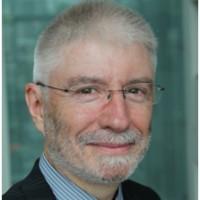
Stephen Palmer (UK)
Title
Navigating Transitions in the Workplace through Coaching Psychology
Abstract
The COVID-19 global pandemic has led to many people facing transition in their lives, communities, and workplaces. This can be accompanied by experiences of reduced performance, excessive demands and pressure at work, lowered resilience, or a lessened sense of self-efficacy and resourcefulness. Coaching psychology can help coachees to navigate periods of transition, and support people to tackle psychological challenges to enhance their wellbeing at work during periods of uncertainty (Palmer, Panchal & O’Riordan, 2020). When coaching positively towards the successful self-management of a transition at work, coaching psychology practice can focus on areas of performance, leadership, stress management, wellbeing as well as the coachees emotional management and performance interfering thinking.
This session will draw upon the fields of positive psychology, ecopsychology, solution focused and cognitive behavioural approaches. We will also explore ways we might use coaching psychology interventions and techniques, within transition coaching situations in the workplace. There will be a particular focus upon the INSIGHT coaching framework (Panchal & Palmer, 2011) to illustrate the application of coaching psychology within the workplace.
References:
Palmer, S. & Panchal, S. (2011). Developmental Coaching: Life Transitions and Generational Perspectives. Routledge.
Palmer, S., Panchal, S., & O’Riordan, S. (2020). ‘Could the experience of the COVID-19 pandemic have any positive impact on wellbeing?’ European Journal of Applied Positive Psychology, 4, 10, 1-13. http://www.nationalwellbeingservice.org/volumes/volume-4-2020/volume-4-article-10/
Currículum vitae

Jonathan Passmore (UK)
Title
One Model: Developing an Integrated approach to coaching psychological informed practice
Abstract
In this session Prof Jonathan will talk about the developing agenda around integration: should coaches focus on the relationship, specialise on a single approach or use an eclectic approach. He will argue that eclectic approaches offer us the most effective route to supporting clients - and will offer a framework for doing so, drawing together in an integrated model the essential ingredients of psychology. In the second part of the session he will deconstruct the One Model and explore each element, and how coaches may draw on specific evidenced based approaches to bring these aspects alive. Finally he will touch on the developing agenda of research and practice in coaching psychology to point out new approaches which can provide enhanced value to coaching psychological practice.
Currículum vitae

Jelena Pavlovic (RS)
Title
Leader as Coach: Coaching Psychology for fostering Business Ethics
Abstract
Since the introduction of the concept of leadership in organizational and management theory, there has been an idea of different approaches, types or styles of leadership. Among many different constructs to describe leadership behavior, there has also been the idea of coaching as a leadership style. In general, the idea of leader as coach assumes participation, dialogue, collaboration in order to develop employees and teams. Coaching as a style of leadership has been described as a way to create a future ready workforce that continuously attends to its development. However, one aspect of leader as coach concept has been less in the spotlight in theory and practice – its impact on the ethical side of business. While it has been widely acknowledged that coaching style of leadership creates buy in for change and decreases resistances to change, it has not been sufficiently emphasized that coaching also creates a more egalitarian work environment. When leaders engage in coaching behaviors they may also contribute to respecting individual voice and internal frame of reference, appreciating diversity of perspectives and creating human encounters with their coworkers. Maybe leader as coach concept has been widely accepted in organizations for its developmental impact, but it also needs a different kind of rationale – ethical case for coaching.
Currículum vitae
Dr Jelena Pavlović is Associate Professor of Ogranizational Development and Change at Department of Psychology, University of Belgrade. She is also Founder and CEO of Koučing centar, a digital platform for delivering coaching and leadership development. She has authored numerous papers and a book "Coaching Psychology: Constructivist Approaches", published by Routledge (2021). She serves as an Associate Editor of Journal of Constructivist Psychology.

Íngrid Queralt (ES)
Title
Systemic Leadership
Abstract
Organizations are living systems with their relationship and power structures.
Beyond the necessary skills to lead teams, it is essential to know and understand the system where changes are intended to be promoted. Respecting their history, mentality and hidden laws can allow people in leadership positions to exercise transformational leadership that is accepted and seen as healthy and organic both by workers and the organization.
A system is a set of inter-connected elements; thus, the movement or position of one element of the system has an immediate influence on the rest. When the position of an element is ambiguous and fails to occupy its place, other parts of the system are affected. When each element is in place, the system relaxes. By observing organizations as a living system, we can see how the systemic principles developed by Hellinger allow us to make sense of the dynamics taking place with teams. Thus, we can see that in a healthy organization, all members have the same right to belong, there is an order that facilitates the development of the system and an adequate balance between what is contributed and what is received. Understanding the dynamics that are established when a principle is not respected and accompanying people to occupy the best possible place for the benefit of team and organizational development is the great contribution of systemic leadership.
Currículum vitae
Íngrid Queralt holds a degree in Psychology. Her training and professional experience have developed simultaneously in the fields of Human Resources, personal and organizational development, therapeutics and coaching. In the organizational area, she holds a Master’s degree in Human Resources Management and Organizational Consulting from the Universitat de Barcelona (UB), a postgraduate degree in Training Engineering from the Universitat Politècnica de Catalunya (UPC), and she is an expert in person-company conciliation. She is also accredited as an expert in work and organizational psychology by the COPC (Official Association of Psychologists of Catalonia). In the therapeutic area, she is certified as a general health psychologist and she holds a postgraduate degree in Brief Psychological Therapy from the UB. In the field of coaching psychology, she is trained in various trends and specialized in systemic coaching. She is certified and reaccredited by the COPC as a coaching psychologist. She has been the director of Human Resources and Training of a business organization for thirteen years, a Human Resources consultant and a teacher at the Universitat Rovira i Virgili for several degrees, such as the Master’s degree in Human Resources Management and the postgraduate degree in Mediation.

Joan Quintana (ES)
Title
EVO Teams: Collaborative Environments through Relational Coaching Psychology
Abstract
The complexity within organizations and the uncertainty of the environment generate work contexts that imply new relationship models between the members of professional teams. It is necessary to regenerate power relations in decision-making, regulation systems, leadership, conversations, recognition systems and knowledge management. In relational coaching psychology, an itinerary is proposed to evolve from a vertical system based on control and competitiveness to a relational model in which one transitions from leader to referent, thus creating secure spaces where each professional contributes to the team with his/her unique knowledge and necessary collaboration to achieve common goals.
Currículum vitae

Elvira Reche (ES)
Title
Coaching Psychologist’s Competences for a Personalised Relational Accompaniment (PRA)
Abstract
The key competencies in coaching psychology have been, are and will be a topic of recurring interest in research, training and intervention in this field. It is legitimate to try to establish the minimum necessary factors of good practice, and have lists that describe and unite these competencies. However, in futures with increasingly dystopian and uncertain contexts, the important urgency of developing meta-competencies that are undoubtedly sustainable, ecological and, above all, evolutionary arises. For this reason, in this conference we will not only focus on pointing out what the key competencies of the coaching psychologist should be in the coming years. We will present the audience with the opportunity it represents for coaching psychologists to be able to develop evolutionary relational skills in the context where they intervene.
Currículum vitae
Elvira Reche is a doctor in Health Psychology from the Universitat Autònoma de Barcelona (UAB) and her thesis is on the evaluation of emotional regulation. She also holds a Master’s degree in Human Resources Management from the Universitat Ramon Llull (URL) and a Master's degree in Advanced Public Management from the Univeristat de Barcelona (UB), as well as a postgraduate degree in Brief Strategic Therapy from the Universitat de Girona (UdG). She is a coaching psychologist certified by the COPC (Official Association of Psychologists of Catalonia) and an accredited specialist in relational coaching by the Instituto Relacional. She is the creator of the Research Yourself© program, a support program aimed at research staff, which was awarded by the COPC. Likewise, she is a certified mindfulness instructor in Mindfulness-Based Stress Reduction (MBSR) and Mindfulness-Based Compassionate Living (MBCL) protocols, with more than four hundred people trained in face-to-face and online mindfulness courses, at companies, hospitals and universities. After fifteen years of professional experience as a manager of projects and public calls at the Catalan Government University and Research Grant Management Agency, she currently works as a consultant at the Instituto Relacional. She is an associate professor at the UAB Faculty of Psychology and a psychologist who trains and recruits the fire brigade and Catalan police force at the ISPC (Public Safety Institute of Catalonia).

Francisco S. Romero (ES)
Title
Supervision in Coaching Psychology as a Strategy to Improve Quality and Professional Excellence
Abstract
Maintaining and developing levels of professional excellence requires developing, non-evaluative learning processes of professional skills and abilities that go well beyond self-study. Supervision in coaching psychology, understood as a strategy to improve the quality of professional interventions, is one of the best accelerating processes for the development and growth of professional skills. The supervision processes are bidirectional; they are collaborative training and learning experiences between the professionals who carry them out, under criteria of ethics, deontology and professional rigor. To supervise (“super videre”) means to observe, to see beyond, to keep watch over professional performance with a global vision and from a certain distance in order to acquire a broader and deeper look at our interventions.
Currículum vitae
He holds a Degree in Psychology from the University of Madrid (Universidad Complutense de Madrid), specialized in Clinical, Organizational and Sports Psychology, with a Master in Human Resources Management (IE Madrid). He is a supervisor for accreditation in EuroPsy for Psychology of Work, Organizations and Human Resources, (EFPA-COP); a EuroPsy specialist in Psychology of Work, Organizations and Human Resources (EFPA-COP); a Psychologist Coach, level MISCP, Accredited by the International Society for Coaching Psychology ISCP; a Psychologist Coach accredited by the COPC; a senior Professional Coach CS80 Aecop EMCC; an accredited Coach Training Program by The Coach Training Institute, an expert in European Certified Trainer in Process Communication (Taibi Kahler/Munich), a Transactional Analyst, and holds a Master in Sports Psychology and Basketball Coach. He is a Mentor accredited by the EMCC (European Mentoring and Coaching Council).
He is also a Member of the Board of Directors of the PTORH Division (Work, Organizational and HR Psychology of the General Council of Psychology of Spain, the President of the Work, Organizational and HR Psychology Section of the COPC, a Professor for Coaching at ESADE Executive Education and Professor of Organizational Psychology at the Faculty of Psychology of the CEU-UAO Barcelona. He collaborates with universities such as UB Bcn IL·3, UAMadrid, IDEC Pompeu Fabra, MBA IUDE Universidad Oviedo, La Salle-URL Bcn. He is the Director of the Master in Coaching Psychology at UAO-CEU in Barcelona. He is a regular speaker at conferences and congresses in the sector (Expomanagement, Aecop, UB, AEEB, etc.).
He has 30 years of experience and dedication in people management at organizations in the areas of identification, assessment, training and development of Managerial Talent, as well as in the design and implementation of systems for Competency Management and Management and Improvement of Performance, through processes of Executive Coaching and Management Teams.
He has developed his activity in the sectors of Banking and Finance, Technology, Energy, Transportation, Mass Consumption and Industrial. His experience has been validated by organizations such as CaixaBank, Banesto, Banco Santander, BBVA, Barclays, Banco Zaragozano, Banco Cooperativo, Everis, TNT World, Oracle Ibérica, Cepsa and Repsol, among others, in the design and implementation of Mentoring programs and schooling of internal Mentors, as dynamic vehicles for the development of the managerial potential.

Marisa Salanova (ES)
Title
Coaching Psychology and Organizational Well-being: A Look from Positive Psychology
Abstract
During the conference I will delve into understanding the principles of positive psychological coaching from the scientific framework of positive psychology, as well as some of its main tools. First of all, and based on the principles of positive psychological coaching, I will describe the principles of PosPsy (Positive Psychology) that deal with these principles based on the improvement of psychological well-being throughout the coaching process. Secondly, I will focus on the idea of PosPsy coaching from coaching psychology and what its contributions are to then deal with the empirical evidence of the effectiveness of PosPsy coaching. Thirdly, I will try to describe how coaching can be considered a healthy organizational practice from the HERO Model (Healthy and Resilient Organization, Salanova et al., 2012, 2019) perspective, with practical cases of its application in organizations. To conclude, I will give some tips on the main tools of PosPsy coaching that can be useful for the professional practice of coaching.
Currículum vitae
Marisa Salanova is a doctor in Psychology and a professor of Social Psychology at the Universitat Jaume I. She is the director of the research team WANT-Prevención psicosocial y organizaciones saludables (psychosocial prevention and healthy organizations) at UJI (see www.want.uji.es). She is a founding member and a former president of the SEPP (Spanish Society of Positive Psychology). She is the author of several books, including Resiliencia: ¿Cómo me levanto después de caer?, Organizaciones saludables: Una mirada desde la psicología positiva, El engagement en el trabajo and Psicología de la salud ocupacional, among others. She is a researcher of competitive projects on work and organizational wellbeing. She has more than three hundred national and international publications and, more recently, has focused on positive psychology applied to work. Marisa Salanova has published in impact journals, such as the Journal of Applied Psychology, Applied Psychology: An International Review, Anxiety, Stress and Coping, Journal of Cross-Cultural Psychology, Computers in Human Behavior and Group and Organizational Management, among others. She actively participates in competitive research projects subsidized with public funds, and through R&D&I contracts in consulting and advisory activities for companies on psychosocial risk prevention, training, applied positive psychology and Human Resources development. Her career has been recognized, thus earning her the Clara Campoamor Award in the city of Benetússer, the October 9 Award, the recognition of her career on the International Women’s Day by the Valencian Parliament and the Ágora Bienestar Award in the category of “career path in work wellbeing research”. She is a member of the editorial committee for several journals: Applied Psychology: An International Review, Journal of Occupational Health Psychology, Journal of Occupational and Organizational Behavior, European Journal of Work and Organizational Psychology, Revista de psicología del trabajo y de las organizaciones, Psicothema and Ansiedad y estrés. She is also a member of the EAWOP (European Association on Work and Organizational Psychology), IAAP (International Association of Applied Psychology), SOHP (Society for Occupational Health Psychology) and IPPA (International Positive Psychology Association).

Reinhard Stelter (DK)
Title
Building a Strong Dialogical Relationship in Coaching
Abstract
The main intention of this presentation is:
-
To renew the understanding of coaching, especially in regard to the dialogical relationship
-
On the basis of radical changes in our societies and organizations to argue for coaching as a fellow-human companionship with moments of symmetry in the relationship between both parts
-
To present key dimensions for the building the dialogical relationship in coaching and other transformative conversations:
-
-
The dialogical dimension
-
The narrative-collaborative dimension
-
The value dimension
-
Feedback as collaborative and outcome-oriented practice.
-
To show the importance of relationship with a ‘human face’ is the most important influencing factor in coaching, a factor that is also recognized with growing interest and evidence in both psychotherapy and coaching research.
Currículum vitae
Prof Reinhard Stelter holds a Ph.D. in psychology from the University of Copenhagen and is Professor of Sport and Coaching Psychology at the University of Copenhagen, visiting professor at the Copenhagen Business School, and a coaching practitioner, supervisor, lecturer, workshop leader and facilitator in private practice. He is accredited coaching psychologist and Associate Fellow of the International Society for Coaching Psychology where he also functions as one of the Honorary Vice-Presidents. His is editorial board member of number of different coaching journals. Between 2009-2015, he has been member of the Scientific Advisory Council of The Institute of Coaching, Harvard University. His research interest is oriented towards identity issues, narrative-collaborative theory and practice, community psychology. His latest book “The Art of Dialogue in Coaching – Towards Transformative Exchange” (Routledge) has been award as The Coaching Book of the Year 2019 by Henley Business School. For further information please visit: www.nexs.ku.dk/coaching & www.rstelter.dk
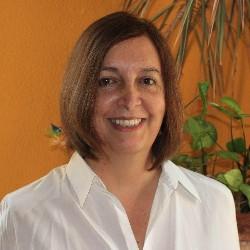
Beatriz Valderrama (ES)
Title
The Wheel of Motives and APM: A Validated Model and Tool for Personal and Organizational Change
The Wheel of Motives model is a scientifically validated taxonomy of human motivation. It is intended to be the periodic table of what motivates human behavior.
The APM (Motivational Profile Analysis) questionnaire is a powerful tool for executive coaching processes, career guidance, selection, talent management policies and research.
Its goal is to facilitate self-discovery and drive conscious and intentional change in individuals, teams, leaders, and the organization as a system.
The author will explain the model, its theoretical and empirical foundations and its applications. She will deepen into the application of executive, team and organizational coaching, to develop emotional intelligence skills, improve leadership styles based on understanding and managing the aspirations of collaborators, maximize individual and team performance and commitment, while promoting a change of mindset and cultural transformation.
Currículum vitae
Beatriz Valderrama holds a PhD in Organizational Psychology from the Universidad Complutense de Madrid (outstanding cum laude). She holds a General Management Program (PDG) from IESE Business School, at the Universidad de Navarra. She is a coaching psychologist (PsEC) with the Official Association of Psychologists of Madrid and a master coach/mentor certified by EMCC (European Mentoring and Coaching Council). She is also the president and head of accreditation of EMCC Spain as well as the founding member of Alta Capacidad. Throughout her professional career, she has designed and implemented organizational transformation and development projects in numerous companies and public entities. She is an expert in change management, coaching, mentoring, team coaching, competency management, talent management, creativity/design thinking, motivation, leadership, and learning and development of emotional intelligence. She teaches in various postgraduate programs at business schools and universities. She is the author of the books Desarrollo de competencias de mentoring y coaching, Motivación inteligente, Fundamentos psicológicos del coaching: Un modelo para SER MÁS, Coaching de equipos diversos, Gestión del talento en la era digital and Creatividad inteligente. Likewise, she is the author of the Motivational Profile Analysis Questionnaire (APM), for which she received the 2013 TEA Ediciones Award, and the Entrepreneurial Talent Questionnaire (CTE). Her most relevant scientific publications are “The Wheel of Motives: Towards a Periodic Table of Human Motivation”. Psychologist Papers, 2018, and “Transformación digital y organizaciones ágiles”. ARANDU-UTIC – Revista Científica Internacional, 2019.
Comité científico
-
Juan J. Cabrerizo
Vocal de la Sección de Psicología Coaching (COPC)
-
Xavier Montero
Vocal de la Sección de Psicología de las Organizaciones y del Trabajo (COPC)
-
Teresa Rodeja
Vicepresidenta de la Sección de Psicología Coaching (COPC)
-
Francisco S. Romero
Presidente de la Sección de Psicología de las Organizaciones y del Trabajo (COPC)
-
Sergi Torondel
Vocal de la Sección de Psicología Coaching (COPC)
ICCP Steering Committee
Co-presidentes
-
Stephen Palmer
International Society for Coaching Psychology (ISCP)
Miembros
-
P-O Eriksson
Coaching Psychology Forum Sweden (CPF)
-
Ole Michael Spaten & Lillith Olesen Løkken
Danish Psychological Association, Society of Evidence-based Coaching (SEBC)
-
Vince Székely
Hungarian Psychological Association, Coaching Psychology Section
-
Zsófia Anna Utry
Hungarian Association for Coaching Psychology
-
Trish Tapara
New Zealand Psychological Society, Coaching Psychology Special Interest Group (NZPS CPSIG)
-
Anna-Rosa le Roux
Society for Industrial and Organisational Psychology of South Africa Interest Group in Consulting and Coaching Psychology (SIOPSA IGCCP)
-
Jerry Dixon
Psychological Society of Ireland, Special Interest Group in Coaching Psychology
-
Carmen Santos & Maite Sánchez-Mora
Col·legi Oficial de Psicologia de Catalunya (COPC), Coaching Psychology Section
-
Siobhain O’Riordan
International Society for Coaching Psychology (ISCP)
-
Zorica Maric
Serbian Association for Coaching Psychology
-
Mariarosaria Izzo
Society of Coaching Psychology Italy (SCPI)
-
Nicole Gilgen & Isabelle Zumwald
Swiss Society for Coaching Psychology (SSCP)

Roberto Crobu (ES)
Accredited Coaching Psychologist
Colegio Oficial de Psicología de la Región de Murcia (COPRM)

Pilar del Pueblo (ES)
Accredited Coaching Psychologist
Col·legi Oficial de Psicologia de la Comunitat Valenciana (COPCV)

FISCP MISCPAccred
Society for Coaching Psychology Italy (SCP Italy )

Accredited Coaching Psychologist (MISCP)
New Zealand Psychological Society

J. Carlos Jiménez (ES)
Coaching Psychologist-Coaching Supervisor
Col·legi Oficial de Psicologia de Catalunya (COPC)

Coaching Psychologist
SIOPSA’s Interest Group in Coaching & Consulting Psychology, South Africa (IGCCP SA)

Accredited Coaching Psychologist
Colegio Oficial de la Psicología de Madrid (COPM)

Accredited Coaching Psychologist
Col·legi Oficial de Psicologia de Catalunya (COPC)
Title of Poster
Contributor(s) and affiliation
Objetive / Aim
Design
Methodology
Results / Findings
Conclusion
Title of Poster
Contributor(s) and affiliation
Objetive / Aim
Design
Methodology
Results / Findings
Conclusion
Title of Poster
Contributor(s) and affiliation
Objetive / Aim
Design
Methodology
Results / Findings
Conclusion
Comité científico
-
Juan J. Cabrerizo
Vocal de la Sección de Psicología Coaching (COPC)
-
Xavier Montero
Vocal de la Sección de Psicología de las Organizaciones y del Trabajo (COPC)
-
Teresa Rodeja
Vicepresidenta de la Sección de Psicología Coaching (COPC)
-
Francisco S. Romero
Presidente de la Sección de Psicología de las Organizaciones y del Trabajo (COPC)
-
Sergi Torondel
Vocal de la Sección de Psicología Coaching (COPC)
ICCP Steering Committee
Co-presidentes
-
Stephen Palmer
International Society for Coaching Psychology (ISCP)
Miembros
-
P-O Eriksson
Coaching Psychology Forum Sweden (CPF)
-
Ole Michael Spaten & Lillith Olesen Løkken
Danish Psychological Association, Society of Evidence-based Coaching (SEBC)
-
Vince Székely
Hungarian Psychological Association, Coaching Psychology Section
-
Zsófia Anna Utry
Hungarian Association for Coaching Psychology
-
Trish Tapara
New Zealand Psychological Society, Coaching Psychology Special Interest Group (NZPS CPSIG)
-
Anna-Rosa le Roux
Society for Industrial and Organisational Psychology of South Africa Interest Group in Consulting and Coaching Psychology (SIOPSA IGCCP)
-
Jerry Dixon
Psychological Society of Ireland, Special Interest Group in Coaching Psychology
-
Carmen Santos & Maite Sánchez-Mora
Col·legi Oficial de Psicologia de Catalunya (COPC), Coaching Psychology Section
-
Siobhain O’Riordan
International Society for Coaching Psychology (ISCP)
-
Zorica Maric
Serbian Association for Coaching Psychology
-
Mariarosaria Izzo
Society of Coaching Psychology Italy (SCPI)
-
Nicole Gilgen & Isabelle Zumwald
Swiss Society for Coaching Psychology (SSCP)


